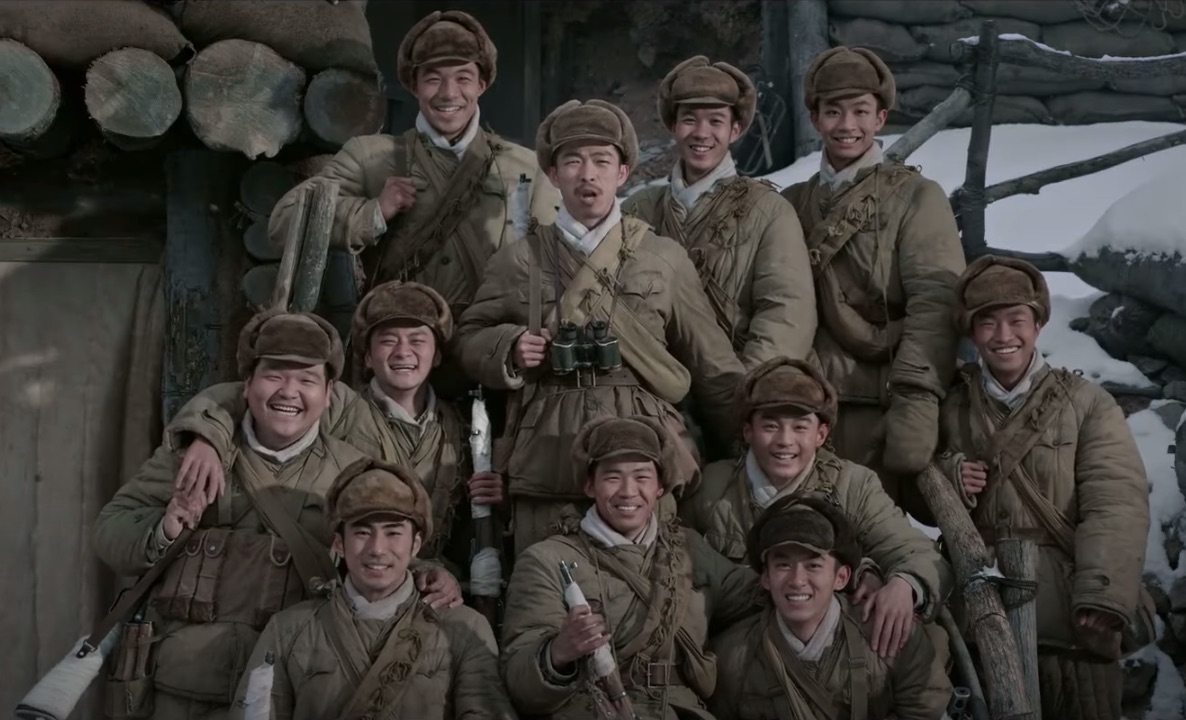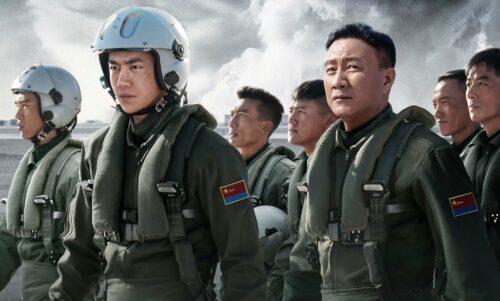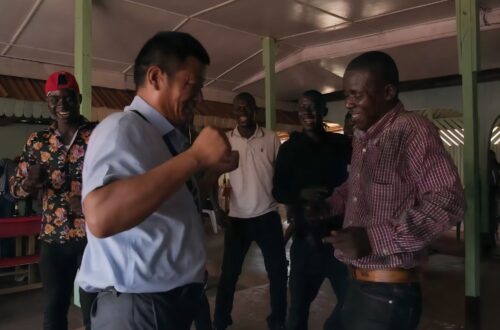‘Snipers’: Zhang Yimou’s Korean War film misses its mark
Zhang Yimou's "Snipers," which Zhang co-directed with his daughter Zhang Mo, is basically last year’s Korean War blockbuster "The Battle at Lake Changjin" on a smaller scale — less bombastic, but employing more or less the same formula.

Ever since serving as the director of the opening ceremony of the 2008 Beijing Olympics, Zhāng Yìmóu 张艺谋 has seemingly merged his traditional role as an acclaimed filmmaker with that of a prominent culture worker. Perhaps this explains the impetus behind his latest film, Snipers (狙击手 jūjí shǒu), a “patriotic” action-thriller set over the course of a single battle during the Korean War in which a group of PLA snipers battle against a group of American sharpshooters.
Co-directed with his daughter, Zhāng Mò 张末, Zhang’s Snipers is basically last year’s Korean War blockbuster The Battle at Lake Changjin on a smaller scale — less bombastic, but employing more or less the same formula. Rambo-style “patriotic” productions such as the Wolf Warrior films and Lake Changjin, featuring elaborate action set pieces with ample explosions and bullet-time CGI, have been popular, and Snipers follows that formula.
In this telling of the “War to Resist America and Aid Korea,” emphasis is once again placed on the Chinese soldiers’ underdog struggle against a technologically and militarily superior opponent. But while the U.S. soldiers have far better equipment, they are depicted as lacking the Chinese soldiers’ fighting spirit. Perhaps unsurprisingly, the Americans are shown as bumbling and incompetent, becoming increasingly more caricatured as the film progresses, almost to the point of absurdity.
There is very little in Snipers that would mark it as a film co-helmed by Zhang Yimou. Any character development is sparse, if not altogether absent. It throws the audience into the action without taking any time to explore the main characters’ backstories or deeper motivations.
Then again, what defines a Zhang Yimou film has become less clear, given how much his filmography over the past 15 years has differed starkly from what came before.
In the 1990s, Zhang was part of the so-called Fifth Generation of Chinese directors who ushered in a golden age for mainland Chinese cinema, helping it achieve international acclaim. Deeply shaped by their experiences growing up during the Cultural Revolution, filmmakers like Zhang and Chén Kǎigē 陈凯歌 (who, as it happens, co-directed the recent Lake Changjin) made films of unsurpassed depth and emotional power. Zhang’s Raise the Red Lantern (1991) was a scathing critique of the Chinese patriarchy and the traditional oppression of women. In To Live (1994), Zhang adapted Yú Huá’s 余华 novel into a devastating on-screen depiction of the suffering of ordinary Chinese in the decades after 1945, a thinly-veiled critique of the Mao years.
In recent years, there seems to be a tension between the kind of films Zhang wants to make versus what he can make. For instance, his 2020 film One Second, a “love letter to cinema” set during the Cultural Revolution and seemingly harkening back to his early career, was pulled by Chinese censors from the 2019 Berlin International Film Festival. It was later approved for release, but allegedly only after some scenes had to be reshot.
This latest film from Zhang Yimou will likely prove to be an unremarkable addition to his filmography. From a director of such talent, Snipers is a disappointment.
https://www.youtube.com/watch?v=6fFGuzssj2Y






